Asda surprises with first sales rise in three years
Growth has been partly at expense of profits, figures show
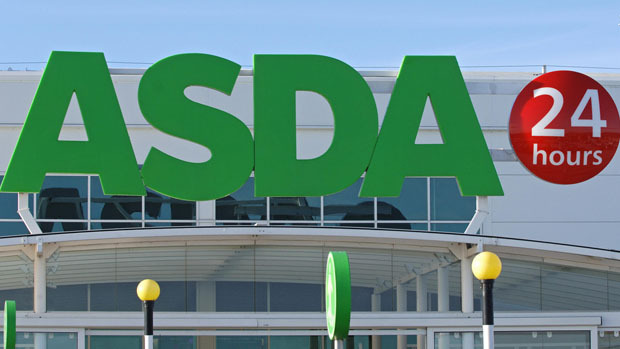
A free daily email with the biggest news stories of the day – and the best features from TheWeek.com
You are now subscribed
Your newsletter sign-up was successful
Asda refuses to intensify price way after worst-ever figures
19 August
Asda will not intensify the ferocious price war that has gripped the supermarket sector over the past two years, despite reporting its worst-ever quarterly sales figures.
Yesterday the Walmart-owned supermarket revealed that like-for-like sales in stores open for more than one year fell by 7.5 per cent for the three months to the end of June.
The Week
Escape your echo chamber. Get the facts behind the news, plus analysis from multiple perspectives.

Sign up for The Week's Free Newsletters
From our morning news briefing to a weekly Good News Newsletter, get the best of The Week delivered directly to your inbox.
From our morning news briefing to a weekly Good News Newsletter, get the best of The Week delivered directly to your inbox.
That's worse than the 5.7 per cent decline reported for the three months ending in March, says The Guardian, and well ahead of the near-six per cent slides consistently recorded in wider industry figures.
In a further sign of Asda's fall from grace, the once second-largest grocer in the UK has now recorded declines for eight consecutive months.
The focus is now on how the store's new chief executive Sean Clarke, who took over from Andy Clarke in June, will go about trying to improve the group's performance.
There is speculation he might ramp up investment in price cuts. Analysts point to comments made last month by Asda's US parent company Walmart that its UK arm would "prioritise sales volume over profit".
A free daily email with the biggest news stories of the day – and the best features from TheWeek.com
But yesterday Walmart said it would not go further than the £1.5bn worth of price reductions over the next five years to which it has already committed.
One expert says this is a strategic mistake given that the likes of Morrisons are pledging to reduce their own prices further.
Neil Saunders, chief executive of the industry consulting firm Conlumino, says: “Walmart, as the biggest retailer in the world, has the firepower and expertise to fight back, but up until now it has been a sleeping giant.
"These figures will act as a wake up call and that position will, in our view, now change."
Others think more price cuts would only hurt sales further without boosting market share.
Asda is faring worse in the face of the rise of the discounters Aldi and Lidl than its Big Four rivals Tesco and Sainsbury's, which have a portfolio of smaller stores and are also benefitting from a separate rise in demand for premium own-brand products.
Clive Black, a food retail analyst at the broker Shore Capital, says: “Asda has got a stronger price perception and relation than a lot of its competitors and it is still underperforming. They have to look at a whole lot more.
"Their stores are boring and functional and they have lost the art of selling."
Asda price war warning hits rivals' shares
07 July
A stark warning that Asda could open up a new front in the long-running price war and wipe out profits across the sector hit listed supermarket shares yesterday.
Tesco saw the biggest fall, by 8.1 per cent to 161.6p, while Morrisons shed 7.2 per cent to 172.4p and Sainsbury's lost 3.7 per cent to 214.6p. This left Tesco and Sainsbury's stock down 19 per cent and 17 per cent in the past year, but Morrisons' remains marginally higher.
All three are recovering today in line with a rising FTSE 100, but are still well down on Tuesday and the past week.
Comments from respected HSBC analyst David McCarthy triggered the sharp slide yesterday, says The Guardian, after he issued "a dire warning about supermarkets' prospects".
In particular, he pointed to little-reported comments last month from David Cheesewright, the head of international operations at Asda's US owner Walmart, that its UK arm would "prioritise sales volume over profit".
The rise of German discounters Aldi and Lidl has affected Asda the most out of the "big four" grocers and Cheesewright's remarks raise the prospect of a new price-cutting drive to lure in customers.
McCarthy said: "If Asda decided to invest half its margin into price, a competitor reaction could wipe out almost all industry profitability and would force an industry restructure." All of the big four have seen profits fall in the past year amid consistent price deflation.
Price falls show no signs of slowing, according to data out this week. The BBC reports food prices dropped 0.8 per cent in June, the deepest deflation for more than a year, according to the British Retail Consortium-Nielsen Shop Price Index.
Overall prices, including non-food items, fell for the 38th consecutive month and at a rate of two per cent in June.
Experts such as Nielsen’s Mike Watkins have suggested that if the recent slump in the pound prompts prices to increase, it could break the deflationary hold on the sector and be welcomed by retailers.
Asda suffers another record fall in sales
07 July
Asda continues to haemorrhage market share to insurgent discounters Aldi and Lidl, with industry data pointing to another record sales decline in the past three months.
Figures published this morning by Kantar Worldpanel covering the 12 weeks to 19 June showed the supermarket's sales dropped 5.9 per cent compared to the same period last year. The Guardian says this marks its "worst performance on record and the biggest slump in the market".
In a trading update last month, Asda revealed like-for-like sales had crashed 5.7 per cent in the first quarter, only marginally better than the 5.8 per cent worst-ever quarterly decline for the preceding three months.
Following that, chief executive Andy Clarke announced he was stepping down, to be replaced by the head of US parent Walmart's Chinese business, Sean Clarke.
The supermarket has been the worst affected by the rise of discounters, which have undermined its price-focused pitch and taken market share. But it has also been outperformed by its "big four" peers and ceded second place in terms of sales to Sainsbury's last year.
All of the big guns saw sales fall in this latest report, with Tesco continuing its relative recovery by recording the shallowest slide of 1.3 per cent. Sainsbury's shed 1.4 per cent and Morrisons 2.4 per cent, in part because of the closure of stores.
Overall, grocery sales dropped marginally for the first time this year, while price deflation stagnated. Aldi and Lidl boosted their collective market share to a "record" 10.5 per cent, adds Reuters.
Most analysts agree the post-Brexit economic uncertainty should not hit grocery sales, pointing to the aftermath of the financial crisis when the sector's performance held up well.
However, if there is an inflation effect from a weak pound, which makes imports more expensive, this could push even more shoppers to the German duo, says Fraser McKevitt of Kantar. "Historically, higher prices have led to consumers looking for less expensive alternatives," he added.
Other experts, though, such as Nielsen’s Mike Watkins, argue it would ultimately be positive for even the big four if the deflationary hold on the sector is broken by Brexit.
Asda chief Andy Clarke replaced by Walmart's China boss
13 June
Asda chief executive Andy Clarke has announced he will be stepping down following a massive slide in sales at the supermarket.
He will be replaced by the head of parent company Walmart's Chinese business, Sean Clarke. Former Sainsbury's director Roger Burnley will be named deputy chief executive and chief operating officer.
Clarke's departure, ending his 20-year career at the company, follows a period of "intense speculation" about his future after Asda posted its worst ever sales results, the Daily Telegraph says.
The supermarket chain has reported seven quarters of declining sales in a row, with like-for-like sales falling 5.7 per cent in the first quarter. Simultaneously, Asda's big four rivals have seen a recovery in their own fortunes.
David Cheesewright, a senior Walmart executive, indicated to shareholders last week that the retailer might shift its strategy.
"With the US business recovering, you can expect that we will shift the balance from protecting profit to protecting share," he said.
Nevertheless, this morning's announcement is still "likely to come as a surprise to many," the Financial Times says.
Cheesewright commented this morning that the appointment of Clarke and Burnley means Asda now has the "right talent in place to lead our businesses through times of change."
Asda chief under 'mounting pressure' as sales slump again
20 May
Asda sales are continuing to struggle amid brutal price wars intensified by the recent growth of rival discounters. The chain, which is owned by the US retail giant Walmart, has just narrowly avoided recording its second successive worst-ever quarterly sales.
In a trading update today, the supermarket reported a like-for-like fall in takings of 5.7 per cent for the 13 weeks to the end of March. For the final three months of last year it recorded a slide of 5.8 per cent, which was its worst-ever performance and was described by the store's chief executive Andy Clarke as a "nadir".
The Daily Telegraph reports that Clarke, the longest-serving boss left standing in the sector, "shunned his traditional press briefing" on the results as "pressure mounted" on his position.
However, in a direct interview with the paper he insisted he was willing to take "short-term market share pain" for long-term growth and said "there is no point searching for short-term fizz". Clarke said the sector would remain "challenging and… competitive".
He also hinted at a more radical strategy that will be deployed "when the time is right". Analysts at Bernstein foresee a "nuclear price war" that would put pressure on the store's 'big four' rivals and narrow the gap to the insurgent German discounters Aldi and Lidl.
An onslaught from the duo, which are rapidly amassing market share and building new stores, has completely shaken up the supermarket sector over the past two years. The German discounters have been responsible for a huge fall in the predominance of the big 'weekly shop' as consumers shop around – and this has prompted a wave of deflationary discounting that is hurting profits.
Asda has been the worst affected of the hitherto dominant big four, as its traditional focus on price has left it exposed to the appeal of rival and more competitive discounters. Tesco, Morrisons and particularly Sainsbury's, which last year overtook Asda as the second largest supermarket in the country, have fared better and all have recently returned to modest sales growth.
Wider retail data published yesterday by the Office for National Statistics emphasises the scale of the challenge after recording a drop in grocery prices of 2.3 per cent, according to the BBC. Overall consumer spending is up by £28bn year on year, though, in a boost to growth amid broader gloom ahead of the EU referendum.
-
 Why is the Trump administration talking about ‘Western civilization’?
Why is the Trump administration talking about ‘Western civilization’?Talking Points Rubio says Europe, US bonded by religion and ancestry
-
 Quentin Deranque: a student’s death energizes the French far right
Quentin Deranque: a student’s death energizes the French far rightIN THE SPOTLIGHT Reactions to the violent killing of an ultraconservative activist offer a glimpse at the culture wars roiling France ahead of next year’s elections
-
 Secured vs. unsecured loans: how do they differ and which is better?
Secured vs. unsecured loans: how do they differ and which is better?the explainer They are distinguished by the level of risk and the inclusion of collateral
-
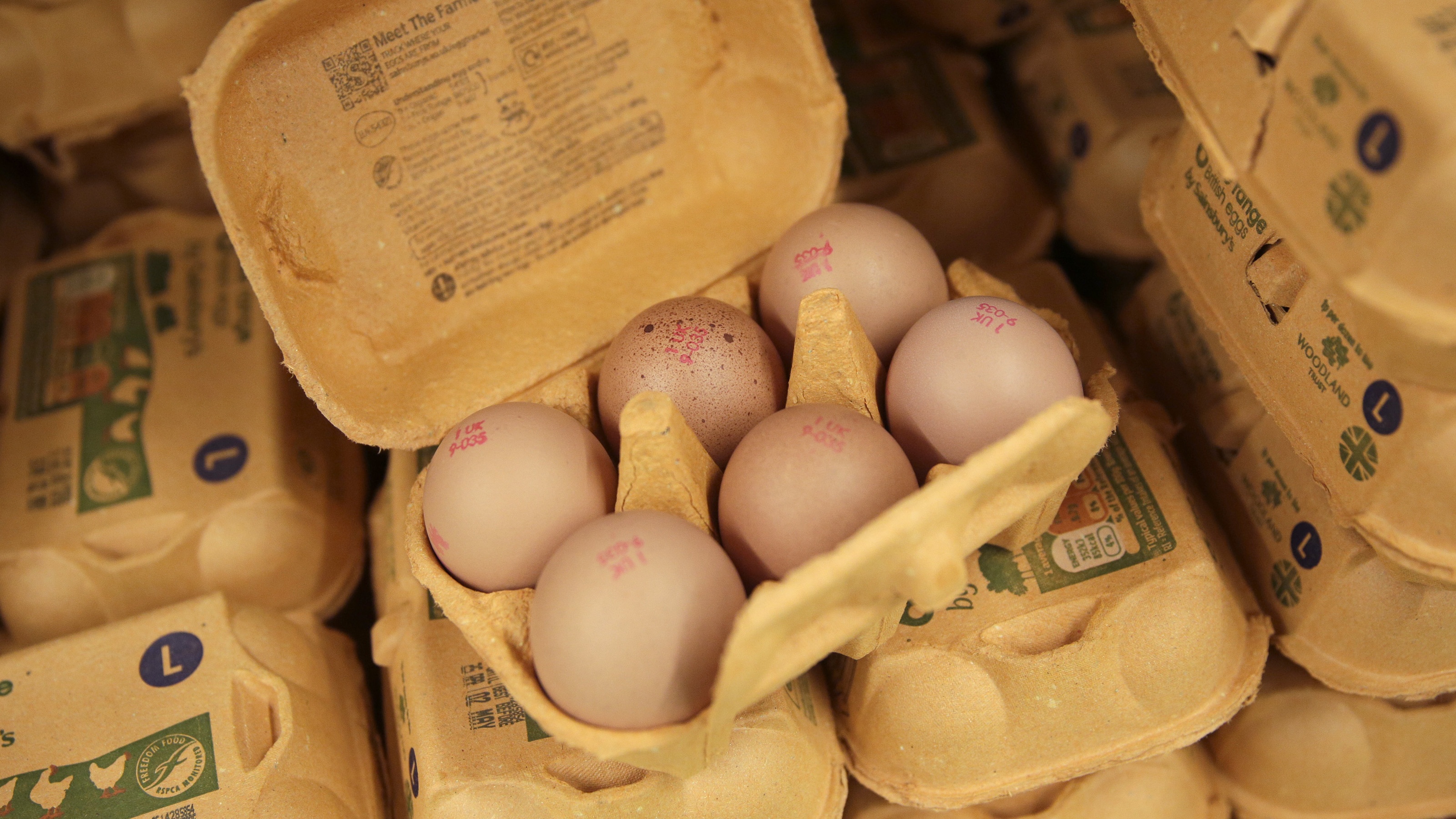 The UK’s Christmas egg shortage
The UK’s Christmas egg shortagefeature Supermarkets blame bird flu but farmers say unfair buying practices are driving them out of business
-
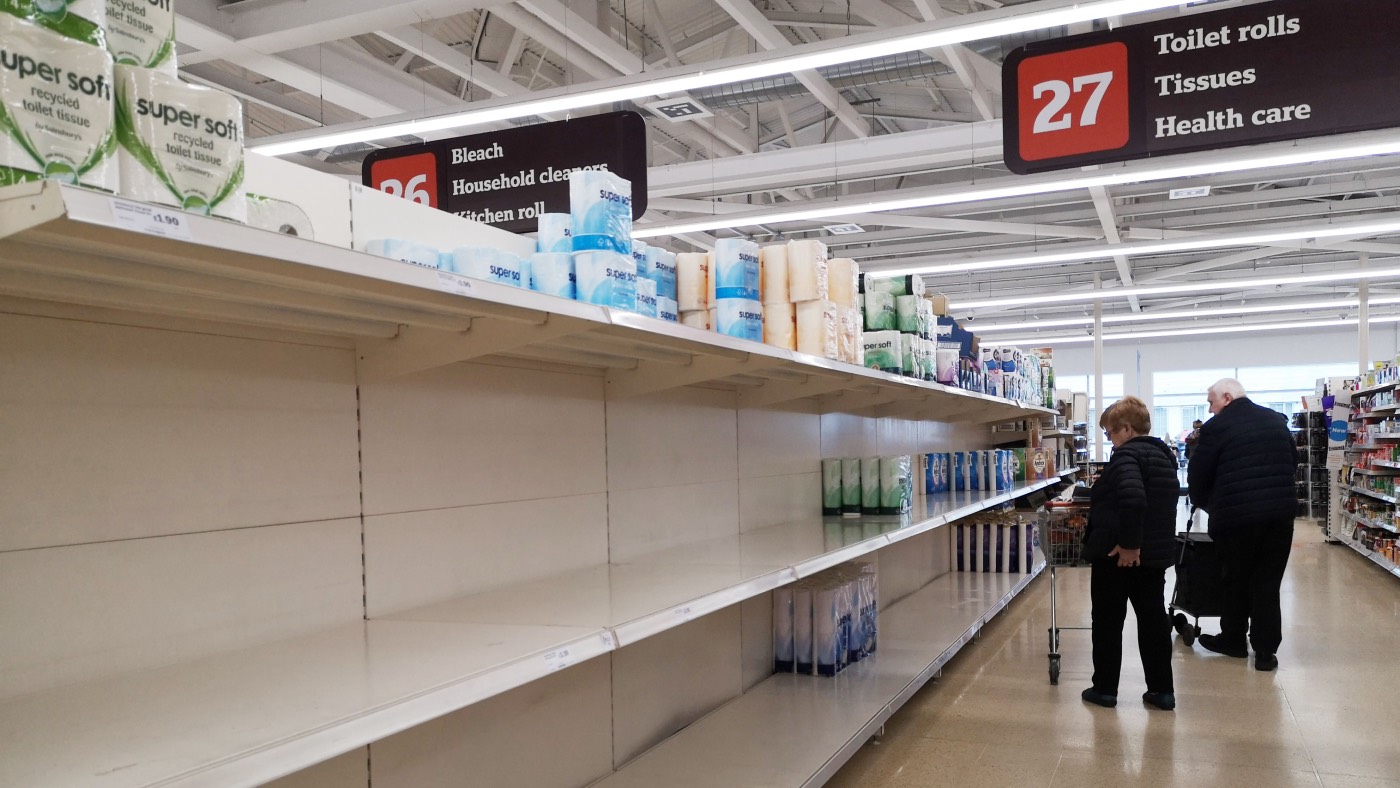 Coronavirus: supermarkets start rationing to combat panic buying
Coronavirus: supermarkets start rationing to combat panic buyingSpeed Read Stockpiling has led to empty shelves at some UK supermarkets - but shortages may be short-lived
-
 Sales of Christmas puddings down on 2018
Sales of Christmas puddings down on 2018Speed Read Supermarket data shows slump in demand for festive food
-
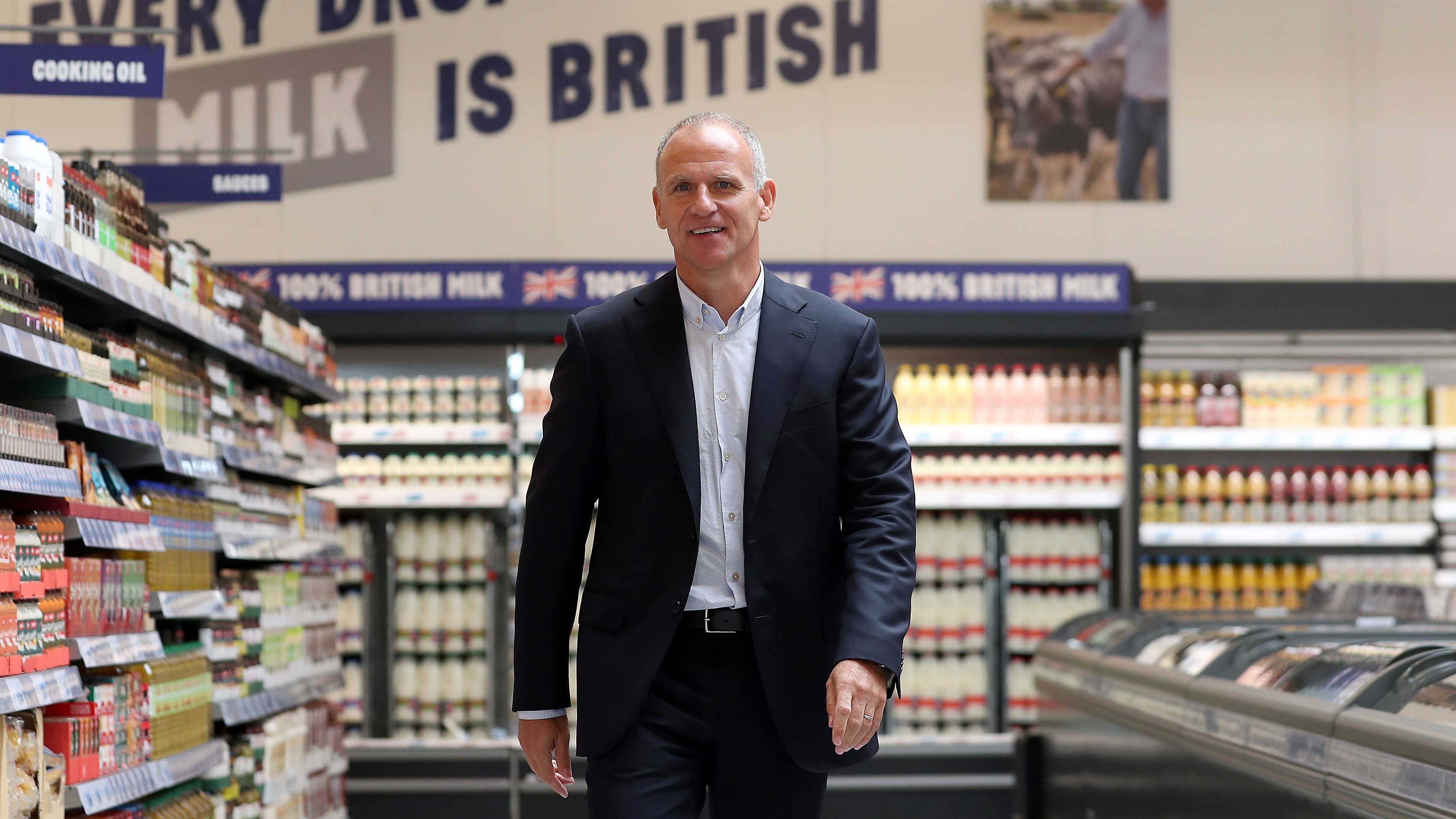 Why Tesco’s Dave Lewis is stepping down
Why Tesco’s Dave Lewis is stepping downSpeed Read The boss who turned Tesco’s fortunes around will leave CEO role in 2020
-
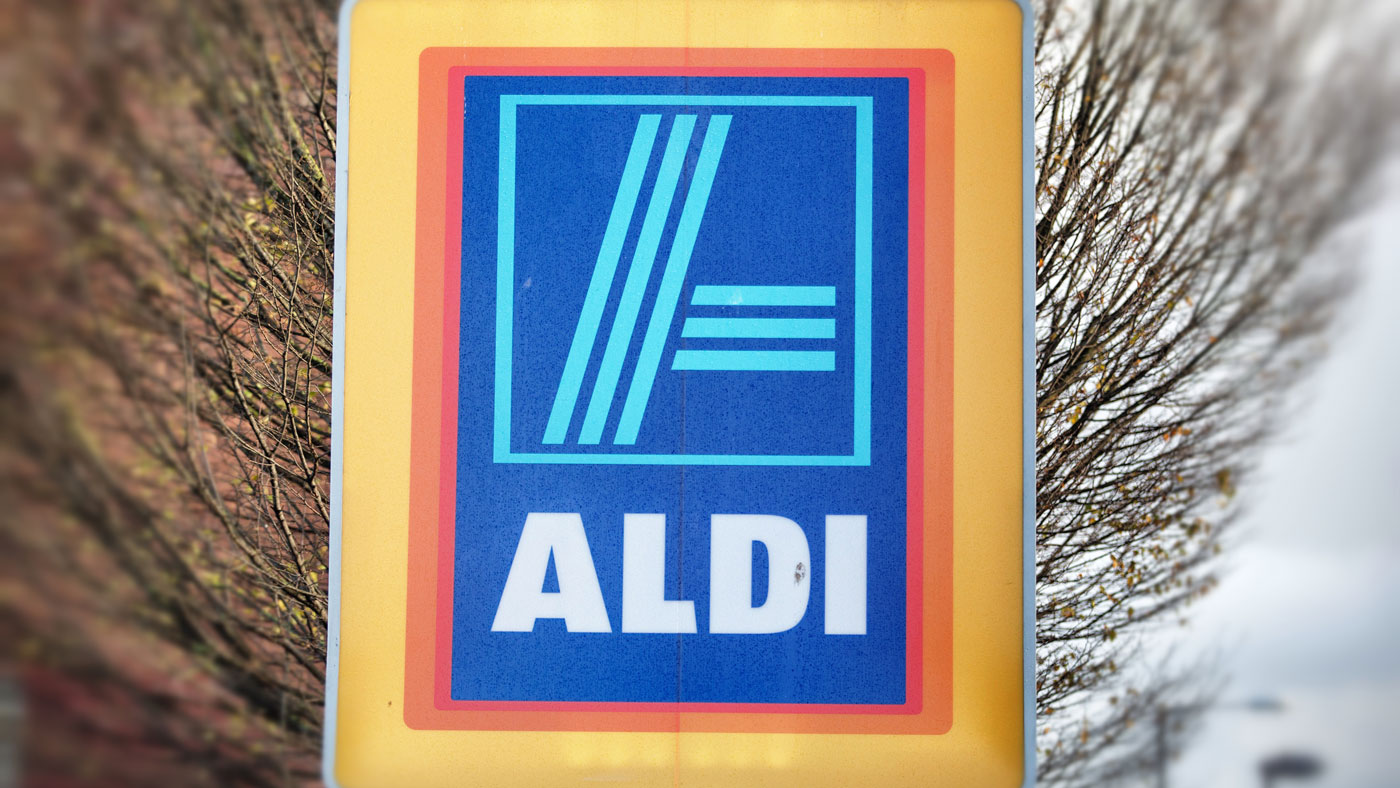 Why are profits collapsing at Aldi?
Why are profits collapsing at Aldi?Speed Read German discounter announces aggressive expansion despite sinking profits
-
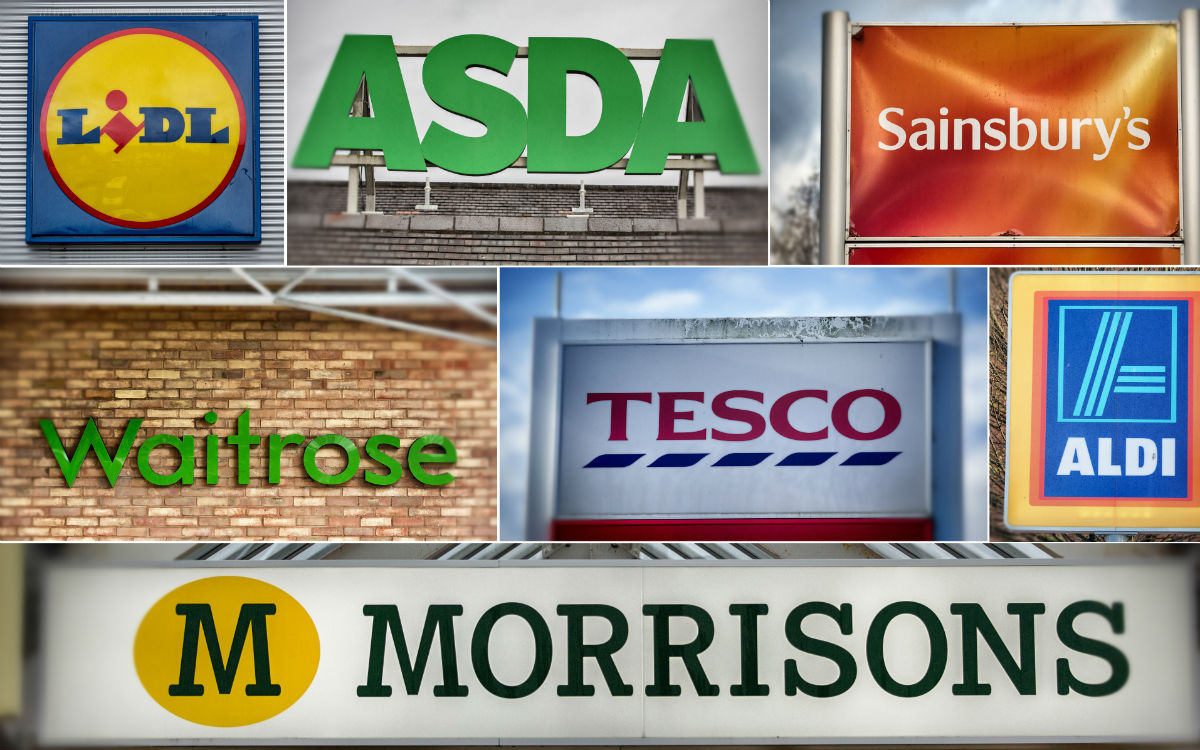 Why are supermarket sales flat?
Why are supermarket sales flat?Speed Read Brexit, fears of recession and price rises blamed for weak data
-
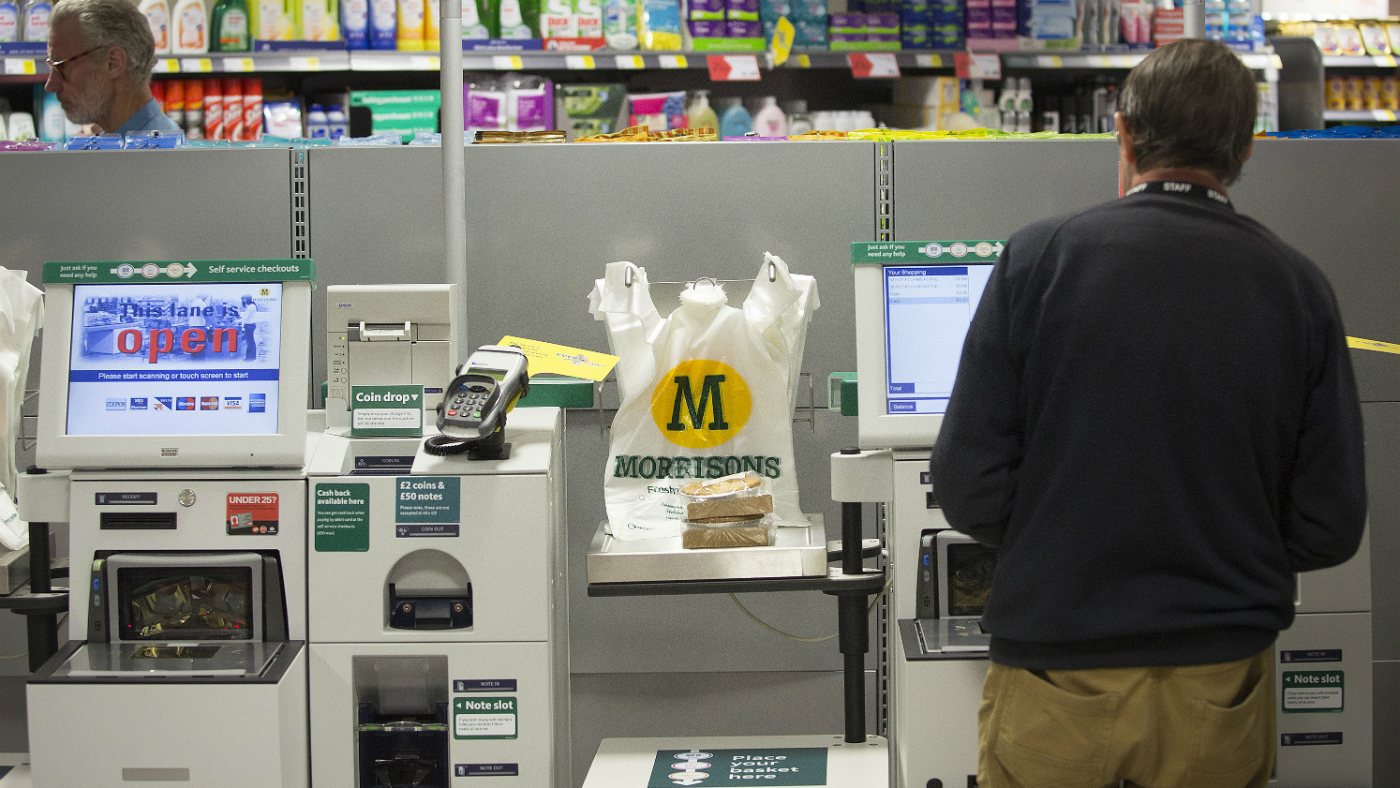 Will shoppers be charged for using self-service machines?
Will shoppers be charged for using self-service machines?In Depth MPs say 1p fee for using self-scan tills could raise £30m a year to ‘heal social divisions’
-
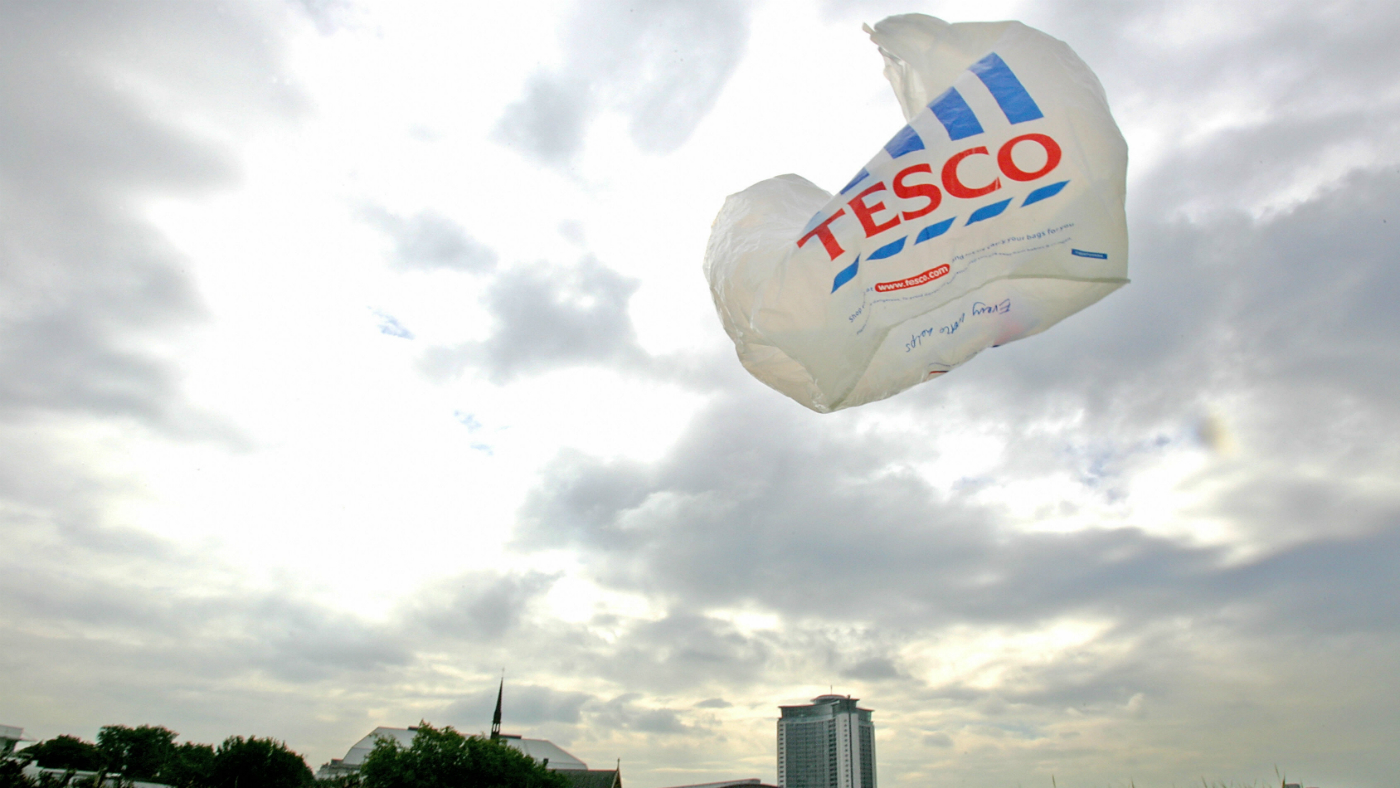 Tesco launches plastic-free trial for fruit and veg
Tesco launches plastic-free trial for fruit and vegSpeed Read The month-long trial will see loose apples and avocados appearing in Extra stores in Watford and Swindon